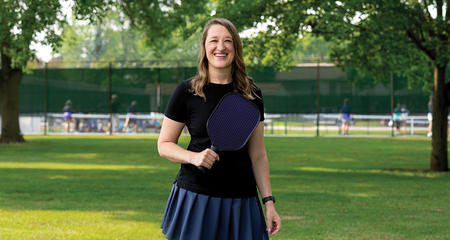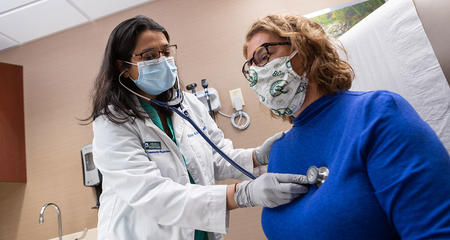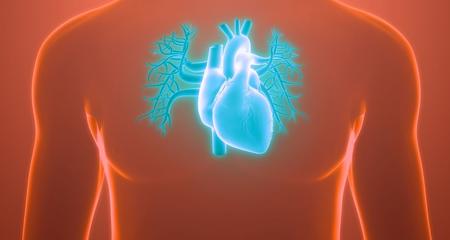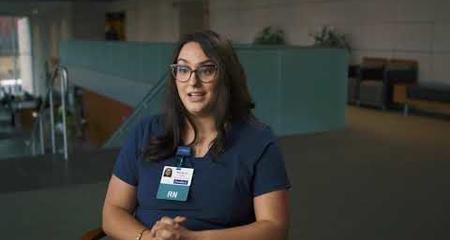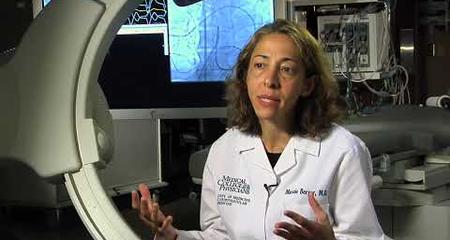An arrhythmia, or dysrhythmia, is an irregular heartbeat or abnormal heart rhythm. Your heart should have a steady rhythm. Even as you exert yourself and your pulse gets faster, it will still be steady without skips or extra beats.
Arrhythmias happen when a group of cells in the heart's electrical system, which regulates its pumping action, sends faulty signals to the heart muscle. In some cases, the group of cells prompts an early extra beat from the top — premature atrial contractions (PACs), or bottom chamber — premature ventricular contractions (PVCs). In other cases, these cells start an irregular heart rhythm.
Arrhythmia Symptoms
Some people can feel their heart arrhythmia. Others may not. The variations in your heart rhythm cause the heart to pump less effectively, and may cause any or all of the following symptoms.
- Palpitations — You may feel like your heart is pounding harder or faster, or it may feel like your heart is fluttering in your chest with the sensation of an early or skipped beat. Some people get a sinking feeling in their chest or a catch in their throat when there is an early beat.
- Dizziness
- Fainting
- Shortness of breath — You may breathe harder or gasp for air when you climb a flight of stairs or walk a long distance. You may have to stop and catch your breath when you haven't had to do that before. Some people feel fatigued after doing activities that never bothered them in the past.
If you experience any of these symptoms, you should be checked out. Some abnormal heartbeats are serious by themselves, others only if there are symptoms. If you feel any irregularity in heart beats, you should bring this up to your primary care provider as soon as possible.
If the irregular beats are associated with severe symptoms such as shortness of breath, chest discomfort or lightheadedness/dizziness, it is best to get into the closest Urgent Care or Emergency Department for diagnosis and prompt treatment.
With a few exceptions, all arrhythmias are treatable. This is especially true in our program, where leading arrhythmia experts specialize in treating complex irregular heart rhythm problems.
Risks
An irregular heartbeat can be harmless or life-threatening, so proper diagnosis and treatment are essential. A benign arrhythmia may require a periodic check-in, while more serious types of arrhythmias may require careful monitoring, medication or surgery. If left untreated, serious arrhythmias can lead to complications such as:
- Fainting spells
- Stroke
- Cardiac arrest
Bradycardia vs. Tachycardia
The heart’s electrical system controls the heart’s rhythm or beating. An arrhythmia is a condition in which the electrical activity of the heart is irregular or is faster or slower than normal. The two main types of arrhythmias are:
- Bradycardia (a slow heart rate of less than 60 beats per minute)
- Tachycardia (a rapid heart rate of more than 100 beats per minute)
Some arrhythmias originate in the atria (the two upper chambers of the heart), while others originate in the ventricles (the two lower chambers of the heart). Despite the vast number of arrhythmias and related conditions, the Arrhythmia Program physician specialists have the experience and expertise patients need to alleviate their problem.
Types of Heart Arrhythmias
Originating in the Atria
- Atrial fibrillation (AFib or AF) occurs when uncoordinated electrical signals emitted in the atria cause the atria to quiver instead of beat normally. AFib increases the risk of stroke and can lead to congestive heart failure. Learn more about the specialized expertise available through our Atrial Fibrillation program.
- Atrial flutter is another, more organized form of arrhythmia that occurs when rapidly fired signals cause the muscles in the atria to contract quickly, leading to a fast, unstable heartbeat.
- Paroxysmal atrial fibrillation (PAF), a form of AFib in which symptoms occur intermittently. Treatments may include cryoballoon ablation.
- Paroxysmal supraventricular tachycardia (PSVT) involves both the ventricles and the atria. It is not life-threatening but may cause symptoms. A series of early beats in the atria speeds up the heart rate. An electrophysiology study is often used to make an accurate diagnosis. Possible treatment options for PSVT include medications or catheter ablation.
- Sick sinus syndrome (SSS) is a group of signs or symptoms that indicate that the heart’s sinoatrial (SA), or sinus node, is not working to as it should. The sinus node contains special "pacemaker" cells that generate the electrical signals that regulate the pace and rhythm of the heartbeat.
- Wolff-Parkinson-White (WPW) syndrome is a condition in which an abnormality in the pathway between the atria and ventricles causes electrical signals to arrive at the ventricles too soon and to be transmitted back to the atria. Rapid heart rates may develop.
Originating in the Ventricles
- Ventricular tachycardia (VT) is a fast heart rate that starts in the ventricles. VT may or may not be life-threatening, but is a common cause of cardiac arrest and sudden death. VT may have many causes including cardiomyopathy (heart muscle disease), coronary artery disease, heart valve disease, an isolated rhythm problem or a genetic condition such as catecholaminergic polymorphic ventricular tachycardia, or CPVT.
- CPVT is a rare, inherited cardiac condition that causes sudden rhythm disturbances, especially during physical activity or a moment of emotional stress. Left untreated CPVT can cause poor blood flow and lead to sudden cardiac death. While CPVT is often diagnosed in childhood, it can go undetected. For accurate diagnosis, an exercise ECG or event monitor may be used. Possible treatment options for CPVT include medications or implantable devices, such as a defibrillator. If you or a family member have been diagnosed with CPVT, it is important that family members are screened. Our team offers genetic screening for heart conditions.
- Ventricular fibrillation (VF) occurs when disordered electrical activity causes the ventricles to contract in a rapid, unsynchronized manner. Sudden death follows unless immediate medical help is provided.
Disorders Related to Arrhythmias
- Conduction disease is a heart rhythm condition that leads to fainting, or syncope. It happens when electrical signals from the atria fail to reach the ventricles, resulting in a slow heart beat (bradycardia) and inadequate flow of blood to the brain.
- Bundle branch block is a delay or obstruction in the transmission of the heart’s electrical impulses that impairs the heart’s ability to pump efficiently.
- Syncope is a temporary loss of consciousness (fainting) usually related to temporary insufficient blood flow to the brain.
- Premature beats (contractions) briefly interrupt the heart’s normal rhythm when the heart beats happen earlier than expected. Very common, premature beats cause one to feel the heart “skipped a beat” or did a “flip-flop.” Premature beats can originate anywhere in the heart
- Cardiomyopathy is any disease of the heart muscle that inhibits the heart’s ability to pump blood effectively. In some instances, the disruption leads to arrhythmias. There may be multiple causes of cardiomyopathy, including viral infections. Genetic cardiomyopathies include Long Q-T syndrome, arrhythmogenic right ventricular dysplasia (ARVD), hypertrophic cardiomyopathy (HCM) and Brugada Syndrome. A consultation with a cardiac geneticist and testing with cardiac MRI are valuable resources for patients with genetic cardiomyopathies, resources readily available at our various heart and vascular locations.
Second Opinion for Arrhythmia and Atrial Fibrillation
If you would like to confirm an arrhythmia or AFib diagnosis or suspect you may have one of these condition, request a second opinion from our experts. We will review your test results and order new tests as needed. Then we will help you determine a treatment plan based on our findings.
Complete Diagnostic Capabilities
Many techniques are used to determine the cause of an irregular heart rhythm, whether bradycardia (a slow heart rate), tachycardia (a rapid heart rate), AFib (an irregular heartbeat) or one of the many other heart rhythm disorders.
We offer the full spectrum of state-of-the-art diagnostic tests, including electrophysiology studies, cardiac MRI, genetic testing, event monitors and tilt table tests.
Comprehensive Treatment Options
An arrhythmia could stop on its own. Most often, it comes and goes — with no indication of when it will return. Other times, the arrhythmia only stops with a strong medication, or a procedure such as a cardioversion (electrical shock to the heart with the patient sedated) or an ablation. As part of an academic medical center, our physicians use the latest technology and research results to provide the most advanced treatments for AFib.
Research and Clinical Trials
Conducting research to better understand arrhythmias, including AFib and other conditions, is an important part of our mission as an academic medical center.
Our patients may participate in heart and vascular clinical trials of new treatment techniques, medications and devices, such as pacemakers and implantable defibrillators. We are committed to bringing the latest treatments and technology to our patients through research and clinical trials.
Arrhythmia Physician Specialists
The multidisciplinary team includes board-certified electrophysiologists (cardiologists who specialize in the electrical activity of the heart and the diagnosis and treatment of heart rhythm disorders), cardiac surgeons and other heart and vascular specialists. Their combined skills and experience make it possible to successfully treat even the most complex cases of arrhythmia. These cases might include patients who have complicated conditions with multiple diagnoses.
Virtual Visits Are Available
Safe and convenient virtual visits by video let you get the care you need via a mobile device, tablet or computer wherever you are. We'll assess your condition and develop a treatment plan right away. To schedule a virtual visit, call 414-777-7700.
More to Explore
